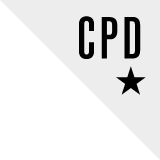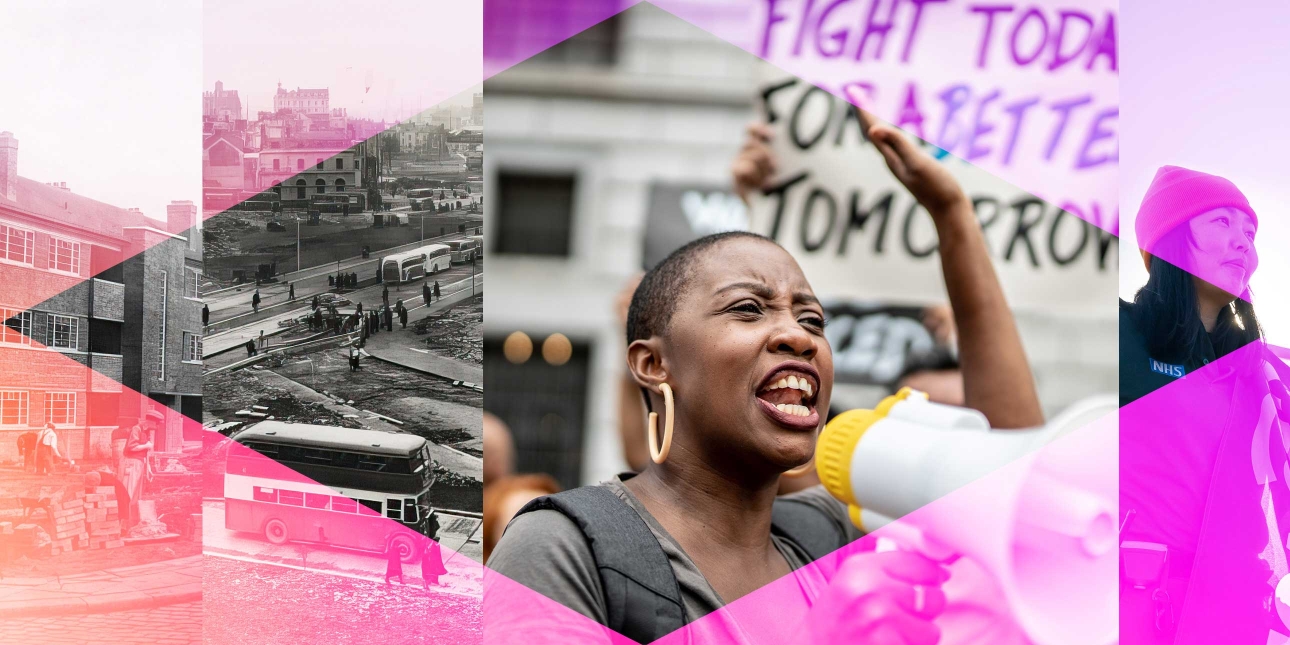Changing the narrative: public interest is key to post-war and post-pandemic PR solutions
The CIPR was set up in the wake of WWII to improve communications and increase co-operation. Emma Duke looks at how, in 2023, the PR industry uses its principles of truth, dialogue and public interest effectively in a world recovering once again from seismic shocks.

The CIPR began in 1948. Three years after the end of the Second World War, thirty years after the end of the First World War; Tim Traverse-Healy, one of the original council members, would later describe in Platinum (a book to celebrate the 70th anniversary of the CIPR) how: "These men had witnessed the miseries of war and, in this brave new world, believed that improved communication was a means of increasing co-operation and reducing conflict between groups in society."
It was a time in which power dynamics were shifting dramatically across the world: India had gained independence, the Israeli state was declared, the Iron Curtain was solidifying, the US announced the Marshall Plan, providing $13 billion in aid to war torn Europe, apartheid began in South Africa, the NHS was created and the World Health Organisation was established.
Cut to 2023: the world is recovering from a global pandemic. Russia is violently reasserting its reach across Europe, a policy-change in China prompts an entire shift in global economic forecasts, polarisation has led to shock election results across the world. Fuel poverty is skewing the diplomatic power balance; countries that traditionally led the world (with or without consent) are scrambling for leverage. Debates rage daily about issues of race, religion, gender and class. Serious questions are being asked about power, privilege and inequality in society. Both the World Health Organisation and the NHS, having navigated our path through the pandemic, are now left fighting for funding.
Has there been progress? Let's leave that question for now…
Collective imperative
The issues provoked after such seismic global events however, are strikingly similar. For Stephen Waddington, Managing Partner of Wadds Inc, and CIPR Past President, history teaches us as much about the future as it does about the past. "There are numerous parallels between the post-war economy of Britain and modern times that emphasise the need for professional public relations practice," he notes.
"If the need for good, ethical public relations was great enough to create the CIPR in 1948, what is our imperative now?"
And therein lies the crucial element of these comparisons: if the need for good, ethical public relations was great enough to create the CIPR in 1948, what is our imperative now, as a collective of global practitioners?
"The CIPR was founded to promote professional public relations practice among practitioners and the public. Its objectives remain as relevant today as they did in 1948, and 2005 when it received its Royal Charter," says Waddington. "Practitioners should be accountable; qualified to do their job; engaged in continuous professional development; and validated in a way that the public can understand."
For Tim Traverse-Healy the 1948 group was quite clear that public relations was not publicity. "It was not promotion, not propaganda, not press relations and not advertising. To be properly termed, public relations had to contain three elements in almost equal measure: truth, concern for the public interest and dialogue."
So how are we using those foundations of truth, dialogue and public interest to address today's challenges?
Speaking up, speaking out
In a context where technology is being used to actively facilitate propaganda and fake news, public relations professionals have an even greater reason to follow our Chartered Institute's ethical imperative and ceaselessly pursue the truth. Practitioners have worked hard to support accurate reporting during the Ukrainian conflict for example. It's also vital that we champion the research into, and debate, around AI and its uses - beyond its impact on our own profession.
And if ever there was a time for dialogue, it is now. From pile-ons to general strikes, it feels as if everyone in the world has an opinion they want to share, and it's rare to find someone more interested in listening to someone else's than spreading their own. In a discordant world, full of people with a heightened awareness of what is fair, right and important, there's a crucial absence of mediation and listening.
"As a Chartered Body, CIPR members work in the public's interest, not just our clients', which provokes an interrogation as to what extent we challenge ourselves to speak truth to power."
While many of us have had to defend our companies and clients in a crisis situation, how many of us have invited those that are angry at us into the room? For an argument to turn into progress, listening and collaboration is crucial.
Two-way dialogue is central to public relations. When we call ourselves communicators we no longer have the ability to just broadcast; that practice was called out years ago. Let's be the listeners, the people in the room providing space for open, respectful discussion, helping us find a more equitable society.
Public interest
As a Chartered Body, CIPR members work in the public's interest, not just their clients', bosses or even the Board's. This again underlines the point about truth, but also provokes an interrogation as to what extent we challenge ourselves to speak truth to power.
"What are we doing to champion what the public needs right now? Are we creating the vision to secure that investment in the future?"
When considering the comparisons between 1948 and 2023 there is one big difference: the extent of investment in the public sector. The global economies of both years are and were a bit of a ‘bin-fire' — and yet there was a vision in 1948; planning for a future beyond what had come before. What are we doing to champion what the public needs now? Are we creating a vision to secure that investment in the future?
The French called the 30 years after the Second World War les trente glorieuses — there was record growth in many parts of the world, but this wasn't a happy accident, the foundations were put in place to create that success. As an Institute we benefitted too: from that small group of Council members in 1948 we now have around 10,000 across the globe.
Today though, whether we work in manufacturing, education, healthcare - and in public, private or voluntary sectors — the question remains as it was then: what can we do to create a better world for the public?
.jpg&w=728&h=90&maxW=&maxH=&zc=1)

